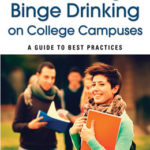Underage and Binge Drinking Among College Students is a Significant Problem in Texas.
Prevention is Key
Creating and enforcing a strong campus alcohol policy is a critical step in addressing underage and binge drinking among college students. A good policy clearly communicates a school’s standards and frames policies in a way that helps create the healthy environment a school hopes to foster. Additionally, it ensures enforcement of consequences if a student violates the policy and avoids loopholes and gaps that keep individuals and organizations from being held accountable.
To help schools, students, parents, and community members gain a better understanding of campus alcohol policies in Texas, TST analyzed the policies of 159 colleges and universities in the state. Using this site, you can A) see how different schools’ policies compare to one another in the areas outlined below, and B) identify potential areas for strengthening existing policies.
Specifically, we looked at the following factors for each policy:
1. Accessibility – How easy is it to access a school’s policy?
2. Comprehensiveness – What activities and behaviors does a campus allow or prohibit?
3. Consequences – How likely is it that a school will enforce consequences when a policy violation occurs?
FACTS ABOUT TEXAS COLLEGE STUDENTS ALCOHOL USE:
58% used alcohol in the past month.
35% binge drank in the past month.
18% drive after drinking at least once per month.

To learn more about the benefits of adopting and enforcing a strong campus alcohol policy, we highly recommend Preventing Binge Drinking on College Campuses by Toben Nelson.
1. Accessing a School’s Policy
Part of having a good policy means making sure those who are affected by it are educated about what the policy is, how and when it applies to whom, and the consequences for violating it. Quite simply, a person has to know the policy exists and how they can find it in order to comply with it. The more difficult a policy is to find, the more challenging it is to administer and enforce.
The following map shows if the accessibility of a school’s alcohol policy is: by Easy, Moderate & Difficult. It should be noted that how easy or difficult it is to find a school’s policy does not indicate how strong the policy is itself.
Click on each of the tabs below to learn more about each category and see which schools fall in each one.
2. Prohibited Activities & Behaviors
Comprehensive campus alcohol policies include measures that reduce alcohol consumption among the student population. Ultimately, measures that have higher effectiveness can help schools create the safe and healthy conditions they want to promote on their campuses.
For example, measures that prohibit the following activities and behaviors are more effective at reducing underage and risky alcohol use among college students: Alcohol consumption in public places; alcohol at school stadiums; tailgating on campus; alcohol at student events; promotion of drinking games; alcohol delivery.
Click on each of the tabs in the map below to see which schools have policies that do or do not prohibit these activities and behaviors.
3. Consequences & Enforcement
A school may have strong policies in writing, but their effectiveness is limited if there is little to no enforcement. Additionally, the consequences for violating the policy must be appropriate and efficient to ensure that students comply with the policies and practices set forth by a campus. In other words, the penalties must be severe, certain, and swift enough to deter students from engaging in behaviors that violate school rules.
The following map looks at three components of consequences and enforcement: Campus security, consequences for off-campus violations; certainty of consequences.
Click on each of the tabs below to learn more about each category and see which schools fall in each one.



